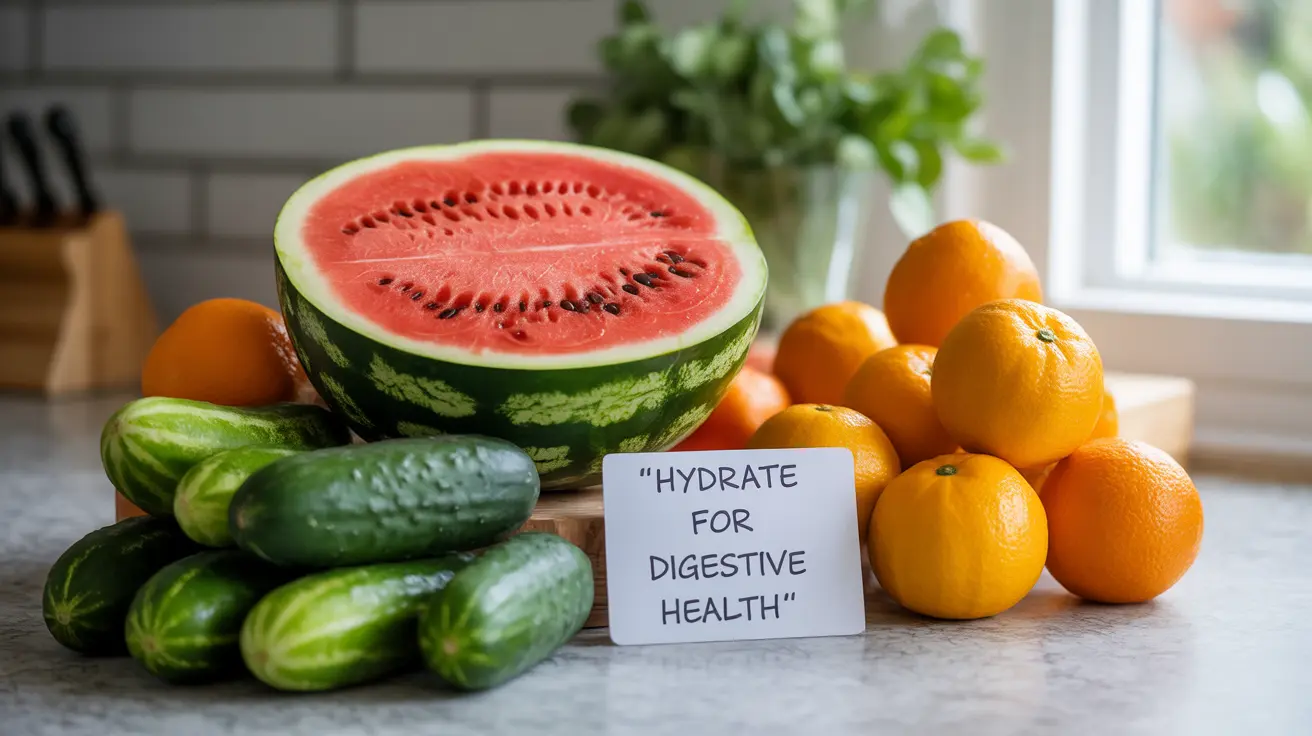When your body doesn't get enough water, it can affect multiple bodily functions, including your bowel movements. Understanding the relationship between dehydration and digestive health is crucial for maintaining regular, healthy bowel habits and preventing uncomfortable complications.
Let's explore how dehydration influences your digestive system, what you can do to prevent related issues, and natural ways to maintain healthy bowel function through proper hydration.
How Dehydration Affects Your Digestive System
Your body requires adequate water to maintain proper digestive function. When you're dehydrated, your body compensates by absorbing more water from your intestines, leading to harder, more difficult-to-pass stools. This process can significantly impact your regular bowel movements and overall digestive comfort.
Signs of Dehydration-Related Digestive Issues
Common indicators that dehydration is affecting your digestive system include:
- Dark-colored urine
- Infrequent bowel movements
- Hard, dry stools
- Straining during bowel movements
- Abdominal discomfort
- Bloating
Prevention and Natural Solutions
Proper Hydration Habits
Maintaining adequate hydration is essential for healthy bowel function. Adults should typically consume:
- 8-10 cups of water daily
- More during exercise or hot weather
- Additional fluids when consuming caffeine or alcohol
- Water-rich foods as part of their diet
Beneficial Foods for Digestive Health
Incorporating these foods can help maintain proper hydration and support regular bowel movements:
- Water-rich fruits (watermelon, oranges, grapes)
- Hydrating vegetables (cucumber, celery, lettuce)
- Fiber-rich foods (whole grains, legumes)
- Probiotic-rich foods (yogurt, kefir)
Physical Activity and Digestive Health
Regular exercise plays a vital role in maintaining healthy bowel function while helping prevent dehydration-related issues. Physical activity stimulates intestinal muscles and promotes better circulation throughout the digestive system.
Frequently Asked Questions
Can dehydration cause constipation in both adults and children?
Yes, dehydration can cause constipation in both adults and children. When the body lacks adequate water, it draws moisture from the intestines, leading to harder stools that are difficult to pass. Children are particularly susceptible to dehydration-related constipation due to their smaller body size and higher fluid requirements relative to their weight.
How does drinking enough water help relieve symptoms of constipation?
Adequate water intake helps soften stools and maintains proper intestinal function. Water keeps the digestive tract lubricated, aids in breaking down foods, and helps move waste through the intestines more efficiently. This process makes bowel movements easier and more regular.
What foods can help prevent or treat constipation caused by dehydration?
Foods high in water content and fiber can help prevent and treat dehydration-related constipation. This includes fruits like watermelon and oranges, vegetables such as cucumber and lettuce, and fiber-rich foods like whole grains and legumes. These foods help maintain hydration while promoting regular bowel movements.
Is it possible to treat dehydration-related constipation without medication?
Yes, dehydration-related constipation can often be treated without medication through increased water intake, consuming water-rich foods, adding more fiber to your diet, and maintaining regular physical activity. These natural approaches are typically effective when consistently applied.
How does regular physical activity impact bowel movements and dehydration-related constipation?
Regular physical activity stimulates intestinal muscles, promoting better digestion and more frequent bowel movements. Exercise also helps maintain proper hydration levels when combined with adequate fluid intake, reducing the risk of constipation. However, it's important to increase water intake during exercise to prevent dehydration.




